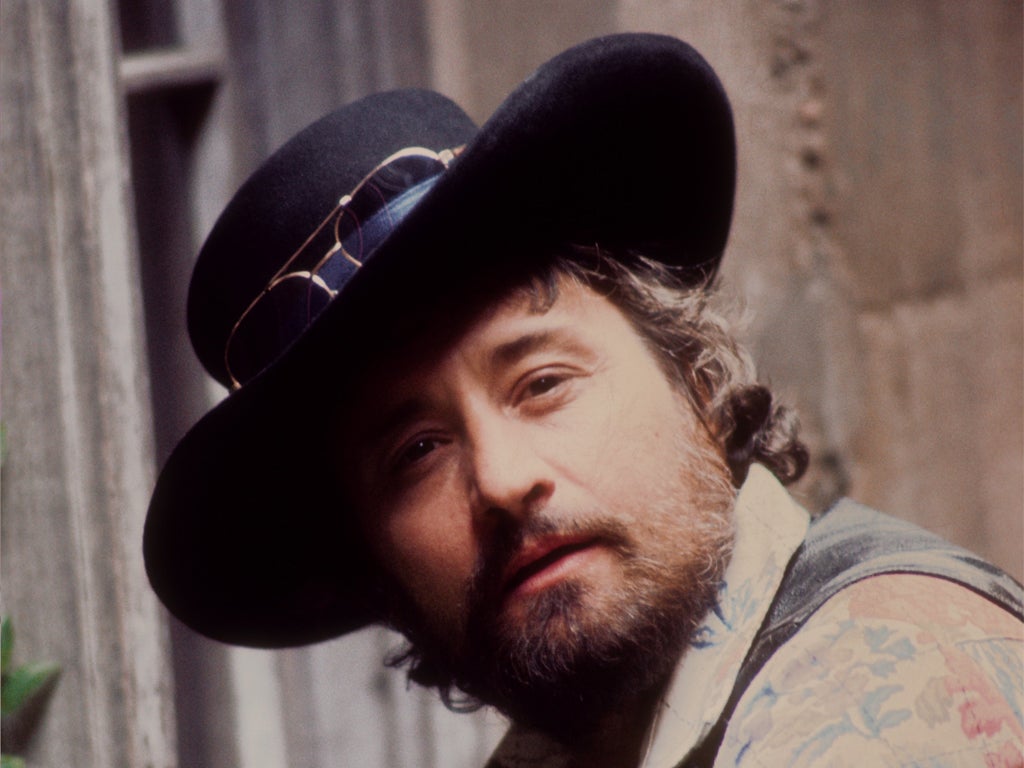
In the strict, disciplined world of country music, Tompall Glaser was a maverick.
He was included alongside Waylon Jennings and Willie Nelson on the million-selling album Wanted! The Outlaws (1976), an LP that instigated a major shift in the genre. It helped to establish Jennings and Nelson as major stars, but Glaser did not benefit from the success, more or less because he wasn’t built that way.
Tompall Glaser came from a family of Nebraska ranchers. His parents, Louis and Marie Glaser, had a corn and cattle farm in Spalding, Nebraska, and they raised six children, the youngest being Tompall (1933), Chuck (1936) and Jim (1937). Once their voices had broken, the three brothers sounded good together and appeared on local radio. In 1957, they had national success on television by winning Arthur Godfrey’s Talent Scouts.
The country singer Marty Robbins used them on his album Gunfighter Ballads and Trail Songs (1959). Their harmonies can be heard on his international hit “El Paso” – and Tompall and Jim wrote “Running Gun”. After Robbins, they sang with Johnny Cash on The Sound of Johnny Cash (1962) as well as his famed “Ring of Fire”. (1963). They also worked with Roy Orbison and Patsy Cline.
Known as Tompall and the Glaser Brothers, because Tompall took lead vocals and also had the drive, they made their own records from 1959; but it wasn’t until they joined MGM Records in 1965 that they had success. They had minor hits with “Gone, on the Other Hand” and “The Moods of Mary”, but a surefire winner, “Streets of Baltimore”, which Tompall had written with Harlan Howard, went to Bobby Bare. It has since been recorded by Charley Pride, Gram Parsons and the Little Willies. In Richard Thompson’s opinion, “‘Streets of Baltimore’ is one of the greatest country songs ever written. It has a wonderfully succinct story, told in three verses... every line is a killer.”
In 1971 the Glasers had a substantial country hit with “Rings” and opened their own Glaser Sound Studios in Nashville. They wanted to give up-and-coming artists a better deal, and they recorded such nonconformist talent as Kinky Friedman, Billy Joe Shaver and John Hartford. The studio, dubbed Hillbilly Central, became a 24/7 hangout for musicians – but the relationship between the prickly Tompall, who trusted no one, and his brothers, became strained.
The Glasers stopped performing together in 1973 and Tompall released The Songs of Shel Silverstein, which included his tongue-in-cheek anthem of male indolence, “Put Another Log on the Fire”. He produced Waylon Jennings’ Honky Tonk Heroes (1973), and the two had much in common with their disdain for the Nashville establishment, their love of alcohol, drugs and partying, and their obsession with pinball machines – sometimes playing 24-hour marathons. They could spend $1,000 in a day, a quarter at a time. When Jennings assigned his publishing to Glaser’s company, Johnny Cash warned him, “Never go into business with your friends.” A few years later, Jennings wanted an audit and Jennings and Glaser never spoke again.
In 1976, RCA – in a brilliant move – branded some rebellious country singers as outlaws, and marketed an album of previously released recordings as Wanted! The Outlaws. Nelson, Jennings and Waylon’s wife, Jessi Colter, performed together, but Glaser mostly worked independently of them, making the albums The Great Tompall and his Outlaw Band and The Wonder of It All. Tompall had moderate success with “T for Texas” and “It’ll Be Her”, but he was dropped by ABC Records, with a third album, poignantly titled Unwanted Outlaw, not being released until 1992.
The Glaser Brothers reformed in 1981 and had their most successful country record with Kris Kristofferson’s “Loving Her Was Easier”. They appeared at the Wembley Country Music Festival, showcasing intricate harmonies that enabled them to swap lead vocals during the individual lines of a song.
Tompall’s voice became gruffer, and he released some quirky projects such as A Collection of Love Ballads from World War II (1987). A low-key tour of UK country music clubs was successful, but suggested his stock had fallen in the States. Around 1990 he dropped out of the business, but a gospel album, Outlaw to the Cross, was released in 2006.
Thomas Paul Glaser, singer: born Spalding, Nebraska 3 September 1933; married June; died Nashville 13 August 2013.
Subscribe to Independent Premium to bookmark this article
Want to bookmark your favourite articles and stories to read or reference later? Start your Independent Premium subscription today.

Join our commenting forum
Join thought-provoking conversations, follow other Independent readers and see their replies